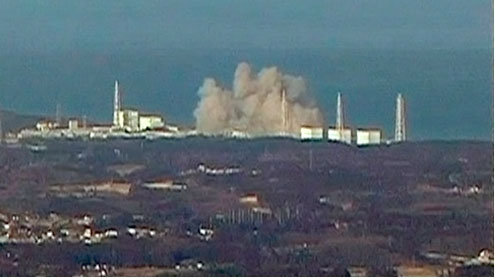 The partial meltdown of reactors in Fukushima, Japan, has created overwhelming fear in people living nearby, considerable fear in people living in the rest of Japan, and a certain amount of fear in people throughout Asia and even in Europe and the United States.Nor can this fear be simply dismissed as hysteria. It can be exaggerated – especially in relation to other continents – but the fact is that, depending on what happens to the reactors, how the wind blows, and what kind of radiation plume develops, the danger could be grave. Moreover, there is still much ignorance about the kind of harm done to human beings by various levels of radiation.Fukushima is not Hiroshima; it is nuclear weapons that most endanger mankind. But as with nuclear weapons, the radiation released by power plants is a form of what in writing about Hiroshima I called “invisible contamination” – a poison that one cannot see, smell or feel, and whose effects are so lasting that, even if they do not show up in one year – or one generation – they may well do so in the next. As one survivor put it to me: “You may look healthy from the outside but all of a sudden something goes wrong and you are sick and you die.”
The partial meltdown of reactors in Fukushima, Japan, has created overwhelming fear in people living nearby, considerable fear in people living in the rest of Japan, and a certain amount of fear in people throughout Asia and even in Europe and the United States.Nor can this fear be simply dismissed as hysteria. It can be exaggerated – especially in relation to other continents – but the fact is that, depending on what happens to the reactors, how the wind blows, and what kind of radiation plume develops, the danger could be grave. Moreover, there is still much ignorance about the kind of harm done to human beings by various levels of radiation.Fukushima is not Hiroshima; it is nuclear weapons that most endanger mankind. But as with nuclear weapons, the radiation released by power plants is a form of what in writing about Hiroshima I called “invisible contamination” – a poison that one cannot see, smell or feel, and whose effects are so lasting that, even if they do not show up in one year – or one generation – they may well do so in the next. As one survivor put it to me: “You may look healthy from the outside but all of a sudden something goes wrong and you are sick and you die.”
When I interviewed survivors in Hiroshima decades ago, they described their terror at witnessing and experiencing grotesque radiation symptoms: acute effects of severe diarrhea, bleeding from various bodily orifices, dreaded “purple spots” from bleeding into the skin, extreme weakness and frequently death; and delayed effects including increased incidence of leukemia during early post-bomb years, and later of cancer of the thyroid, stomach, lung, ovary and uterine cervix. Since it is known that radiation can have genetic effects over the generations, there was much fear in Hiroshima about giving birth to abnormal children.None of this may happen in connection with Fukushima, and it is quite possible that reactors there will be sufficiently treated and cooled to avoid a large-scale nuclear disaster. But we are talking about the same technology, so we should not be surprised that radiation released from reactors creates nuclear fear similar to that associated with the weapons.
I found this also to be true at Three Mile Island, where less radiation was released than at Fukushima, but people nonetheless expressed the full panoply of fear associated with the invisible contamination of radiation. Such fear has pervaded the nuclear accident at Chernobyl, and has by no means entirely disappeared to this day.One may ask how it is possible that Japan, after its experience with the atomic bombings, could allow itself to draw so heavily on the same nuclear technology for the manufacture of about a third of its energy. There was resistance, much of it from Hiroshima and Nagasaki survivors. But there was also a pattern of denial, cover-up and cozy bureaucratic collusion between industry and government, the last especially notorious in Japan but by no means limited to that country. Even then, pro-nuclear power forces could prevail only by managing to instill in the minds of Japanese people a dichotomy between the physics of nuclear power and that of nuclear weapons, an illusory distinction made not only in Japan but throughout the world.
There is also the hope that something peaceful and life-enhancing can be derived from the awesome, world-destroying nuclear deity; that we humans who commissioned and built the weapons can somehow find redemption in that same ultimate technology. And there are the “risk-assessment” studies that find nuclear power quite safe in statistical terms, failing as these studies do to account for extreme events of nature as well as human error and technical malfunction. Some have been objecting to the “doomsday language” used in connection with Fukushima’s radiation dangers. And it is true that exaggerations at all levels should be discouraged, exacerbating as they do fears on the part of everyone. But that doomsday language has its source in the doomsday nature of the stuff that is feared, and in the realization that we have created a technology with which we can annihilate ourselves as a species. Here too the association between bomb and reactor cannot be willed out of existence.
We do better to overcome our denial and dissociation and to instead acknowledge that radiation effects are one and the same no matter what their source, that the combination of nature and human fallibility makes no technology completely safe, and that the technology most dangerous to us can hardly be relied upon to provide something “clean” or pure, or to otherwise redeem us. – Khaleejnews












